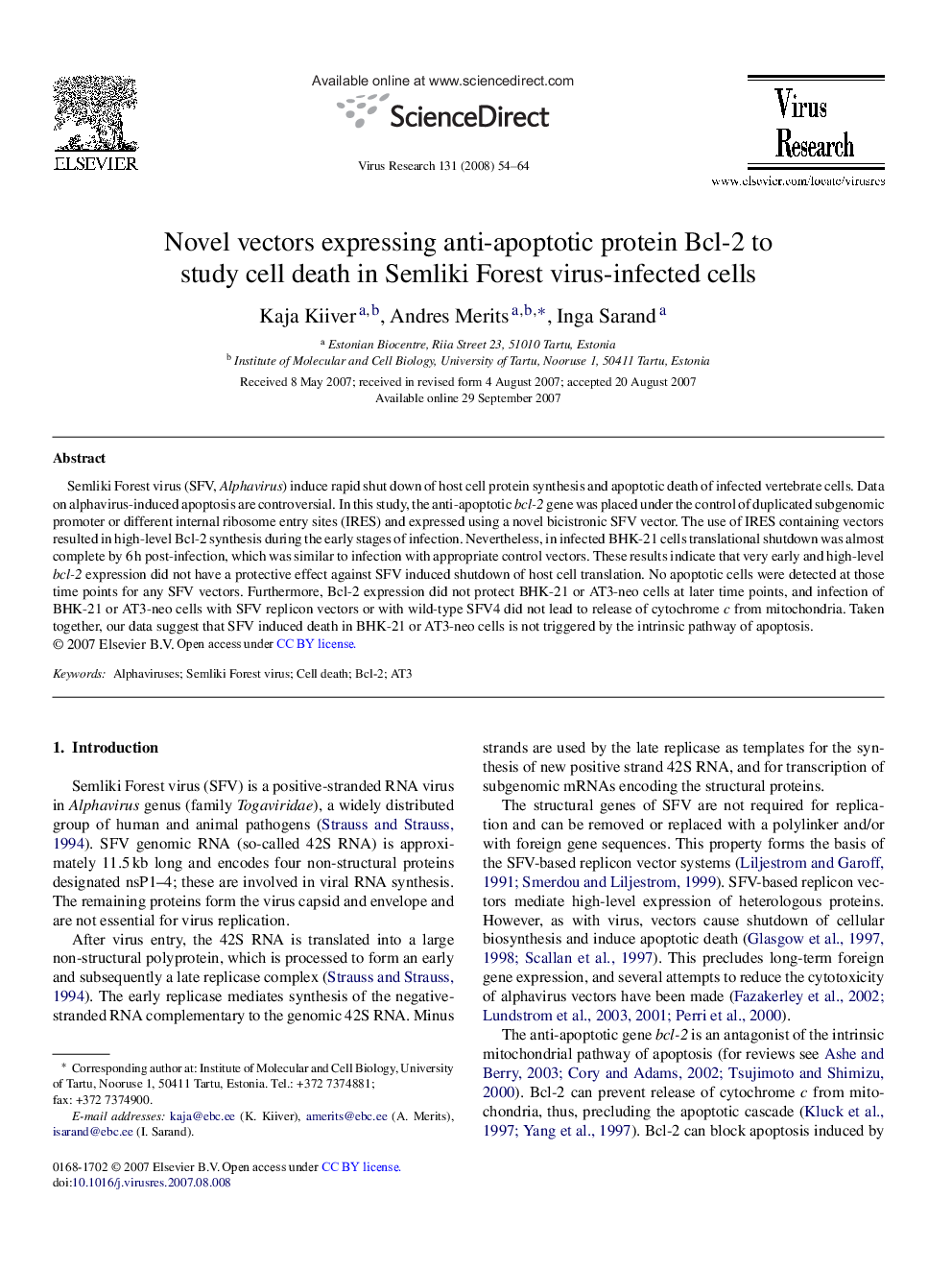| Article ID | Journal | Published Year | Pages | File Type |
|---|---|---|---|---|
| 6143622 | Virus Research | 2008 | 11 Pages |
Semliki Forest virus (SFV, Alphavirus) induce rapid shut down of host cell protein synthesis and apoptotic death of infected vertebrate cells. Data on alphavirus-induced apoptosis are controversial. In this study, the anti-apoptotic bcl-2 gene was placed under the control of duplicated subgenomic promoter or different internal ribosome entry sites (IRES) and expressed using a novel bicistronic SFV vector. The use of IRES containing vectors resulted in high-level Bcl-2 synthesis during the early stages of infection. Nevertheless, in infected BHK-21 cells translational shutdown was almost complete by 6Â h post-infection, which was similar to infection with appropriate control vectors. These results indicate that very early and high-level bcl-2 expression did not have a protective effect against SFV induced shutdown of host cell translation. No apoptotic cells were detected at those time points for any SFV vectors. Furthermore, Bcl-2 expression did not protect BHK-21 or AT3-neo cells at later time points, and infection of BHK-21 or AT3-neo cells with SFV replicon vectors or with wild-type SFV4 did not lead to release of cytochrome c from mitochondria. Taken together, our data suggest that SFV induced death in BHK-21 or AT3-neo cells is not triggered by the intrinsic pathway of apoptosis.
